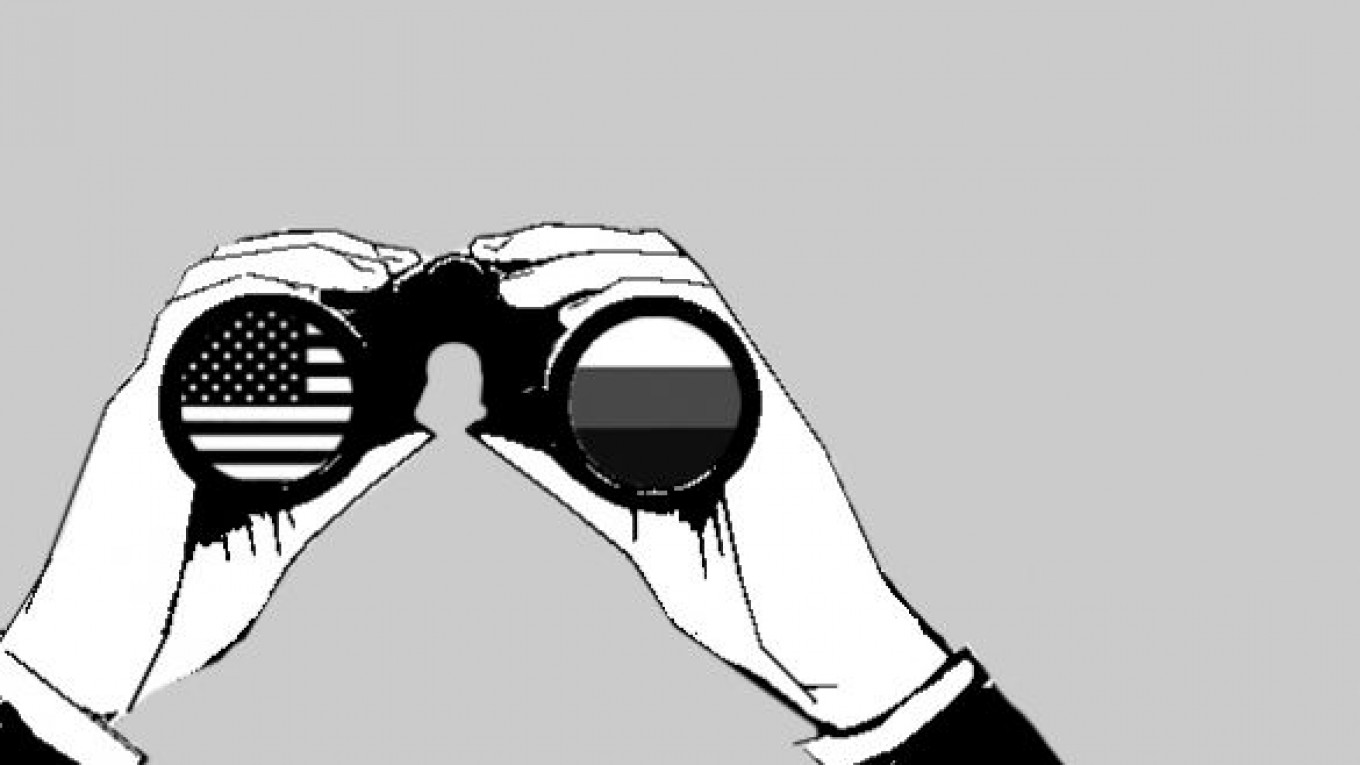Russians like to quote a line from writer Mikhail Bulgakov, asserting that social collapse, prior to manifesting itself in the condition of public toilets, occurs first in people's heads. Nevertheless, public bathrooms are a useful barometer. On a Moscow street, using a portable latrine can set you back as much as 25 rubles (80 cents), up from 5 rubles a decade ago. This is half of what the notoriously expensive public toilets charge in Switzerland, while providing incomparably better comfort and hygiene.
Switzerland provides a useful economic comparison to Russia. Both countries are living in a financial bubble. Switzerland has become a safe haven for investors as concerns about the euro mounted. Russia, meanwhile, has enjoyed a huge windfall of petrodollars as oil prices remained at historically high levels for over a decade.
Both currencies are overvalued: The franc thanks to capital inflows, and the ruble because of high domestic inflation. How overvalued? A standard cup of Starbuck's coffee, which sells for roughly $2.50 in New York, costs around $5 in Zurich and as much as $6 in Moscow.
A strong currency may flatter national pride, but it is bad for the economy. First of all, it bankrupts domestic producers and hooks consumers on cheap imports. It also discourages visitors. The only tourists who seem unfazed by prices at Swiss department stores are Russians. In this regard, the organizers of the Sochi Olympics should be worried that the average European or American fan will not be able to afford Russia next February. Moreover, when built on bubbles, currency overvaluation is often followed by a swift and painful devaluation.
Since 2011, the Swiss National Bank has maintained a ceiling for the franc against the euro, but this is only part of a concerted response to the overvalued currency. Swiss companies have been relentlessly cutting costs, so that Switzerland finished first in the Global Competitiveness Index compiled by the World Economic Forum four years running. Consumer prices have been falling, while inflation in the euro zone has been running at more than 2 percent a year. As a result, by around 2015 the overvaluation of the franc will fade.
Not so for the ruble. Last year, Russia again slipped in competitiveness ranking and now is No. 67. Inflation is expected to stay at 6 percent in nearby years, above international averages, meaning that the ruble will stay overvalued. The cost of using a street toilet may soon hit a dollar.
Or maybe not. The Swiss are, to a large extent, masters of their economic fate, while Russians are dependent on the vagaries of the energy market. The market for natural gas has been volatile. Hydrofracking and liquification technology are putting downward pressure on prices and unifying previously fragmented markets.
Nor are prospects for oil prices bright. Many economists still talk of peak oil, meaning that production and new discoveries will decline from this point on, but evidence points to new sources of oil supply in North America, Africa and Brazil. The U.S. is no longer the world's largest importer of crude, since its own production has been boosted by shale oil. At the same time, the global economy is slowing, whereas a period of costly oil has encouraged energy efficiency and the development of green energy sources.
With so many oil producers hooked on inflows of petrodollars, if prices start to decline, they will compete with one another to pump and export more oil. This is exactly what happened in the second half of the 1980s, causing oil prices to fall to $10 per barrel a decade later.
Usually, a signal that a bubble is about to pop comes from some outrageous, even eye-popping occurrences in everyday life. There is a legend, for example, that Joseph Kennedy sold his shares just before the 1929 Wall Street crash because the guy who shines his shoes had begun discussing stock prices with him. In the 2000 dot.com crisis, the alarming signal was sent by the fact that office parks in Silicon Valley ran out not only of office space but parking spots, as well. Finally, the 2007 real estate collapse in the United States was semaphored when membership in the National Association of Realtors surpassed one million.
Could paying nearly a dollar to use a cheap, foul-smelling, plastic port-o-potty in Moscow presage the bursting of the worldwide oil bubble?
Alexei Bayer, a native Muscovite, is a New York-based economist.
A Message from The Moscow Times:
Dear readers,
We are facing unprecedented challenges. Russia's Prosecutor General's Office has designated The Moscow Times as an "undesirable" organization, criminalizing our work and putting our staff at risk of prosecution. This follows our earlier unjust labeling as a "foreign agent."
These actions are direct attempts to silence independent journalism in Russia. The authorities claim our work "discredits the decisions of the Russian leadership." We see things differently: we strive to provide accurate, unbiased reporting on Russia.
We, the journalists of The Moscow Times, refuse to be silenced. But to continue our work, we need your help.
Your support, no matter how small, makes a world of difference. If you can, please support us monthly starting from just $2. It's quick to set up, and every contribution makes a significant impact.
By supporting The Moscow Times, you're defending open, independent journalism in the face of repression. Thank you for standing with us.
Remind me later.






